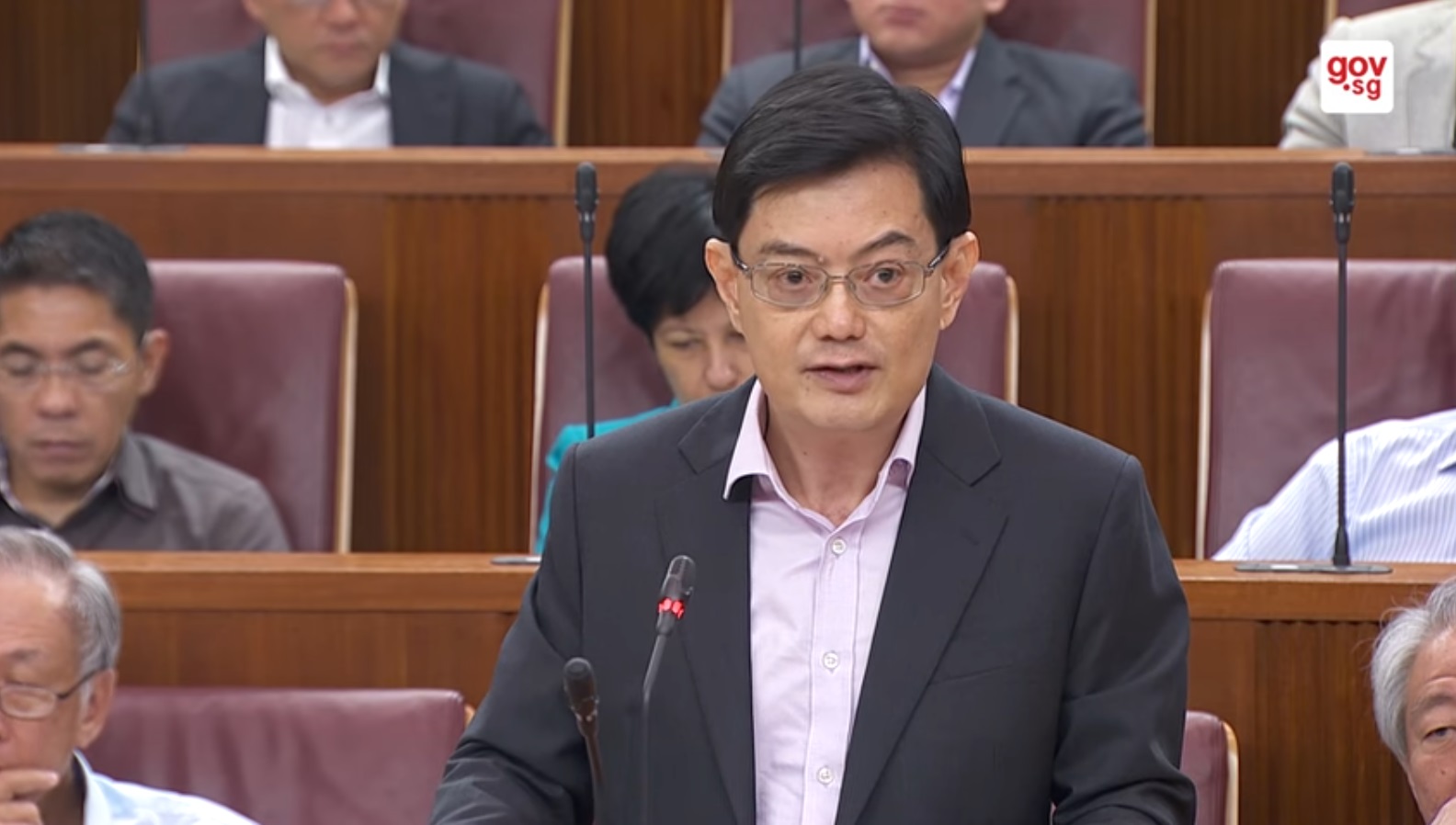Finance Minister Heng Swee Keat was back in parliament on Thursday, March 2 to deliver his closing statement, after three days of parliamentary debate on the 2017 Budget.
Typically, this speech is intended for the Finance Minister to highlight the key debates about his budget statement, address the concerns of various parliamentarians, clarify certain matters and summarise the substance of the debate.
Here are five main points Heng made in his closing statement:
1. Ideas to build a future economy
Recently, the Committee On The Future Economy (CFE), led by Heng, released its report on Feb 9.
They presented seven strategies to drive economic growth in the next five to 10 years, focusing on keeping Singapore open and connected to the world, promoting internationalisation, and also ensuring that workers acquire deeper skills.
" frameborder="0" allowfullscreen>
Heng said the CFE's strategies can be realised through two critical elements:
i) Singaporeans need a "spirit of enterprise": This means a willingness to try new things and to seek creative solutions to problems. This also requires an attitude of continually striving, of persevering, of drawing out the best ideas from every individual.
ii) Effective partnerships with one another: This means forging partnerships between the government, the community, businesses and individuals.
Heng added that what Singapore needs "is not a change in strategy, but a strategy for change". And this strategy for change requires a significant shift in mindset.
In this different world where the pace and direction of change is uncertain, Heng said that Singaporeans need "to develop a pervasive culture of innovation, nimbleness and adaptability".
2. How Singaporeans and Singapore businesses can improve and thrive
Basically, Heng said that Singaporeans have to "go beyond the familiar" for their jobs, while Singapore businesses have to create value and go to new markets.
On Singaporeans: They must be willing to explore new prospects. They need to continuously upgrade their skills, and keep them relevant.
On Singapore businesses: They must have the courage to adapt and try new ideas. They must be willing to explore new destinations, especially those places where few others have gone.
3. On valuing our resources, such as changing the water prices, introducing the carbon tax, and restructuring diesel taxes
" frameborder="0" allowfullscreen>
On water price hikes, Heng said that "water sufficiency is a matter of national survival", as securing a sustainable water supply for Singapore has been an all-consuming pursuit of the government since independence. Heng added that the government pays for part of the total cost of securing a safe and clean supply of water for Singaporeans and businesses.
On introducing the carbon tax, Heng said that it is the economically efficient way of reducing greenhouse gases, as it places a price signal to incentivise emitters to lower emissions.
On restructuring diesel taxes, the objective is to incentivise reduced usage, and lower pollutive emissions. Heng said the government has put in place significant offsets to help businesses manage the transition.
4. Acknowledging the opposition MPs' concerns, especially that of WP Chairman Sylvia Lim:
Here's some of what he said:
"Ms Sylvia Lim asked – why raise water now, and carbon tax later? The carbon tax is new and the details will have to be carefully studied. But I think a more fundamental point is whether water is of strategic significance, and that we should each do our part."
"Ms Sylvia Lim asked whether we evaluate programmes and I think on the economic programmes, Minister Iswaran gave a detailed explanation about how agencies evaluate those programmes and have to adapt and change when necessary. Then, she raised the issue of the PIC. The PIC in fact has largely achieved its objective but she raised examples of abuses to make her case. This is mistaken. In fact, the fact that those abuses are uncovered is because of extensive audits that are done by the agencies and we should commend the officers for the seriousness in which they undertake this. And in many other countries, those abuses would not even be known."
"Ms Sylvia Lim suggested using the proceeds from land sales. Now, the proceeds from land sales go into past reserves, and it is because of this prudence that we are able to build up our reserves, and we can use part of these returns for our expenditure. So we must remain disciplined and prudent in spending the returns of our reserves, so that they remain a stable and sustainable source of revenue over the long term."
5. On the government spending prudently and effectively
" frameborder="0" allowfullscreen>
Heng said that it is even more critical to ensure that the government spends within its means to achieve its outcomes.
The government budgets for ongoing functions using a block budget framework, where ministries are provided with budget caps for a medium term period. Within the cap, each Ministry decides how best to allocate its budget.
The government has also applied a permanent 2 per cent downward adjustment to the budget caps of all ministries
and Organs of State.
Top photo from gov.sg YouTube channel.
If you like what you read, follow us on Facebook and Twitter to get the latest updates.
If you like what you read, follow us on Facebook, Instagram, Twitter and Telegram to get the latest updates.
